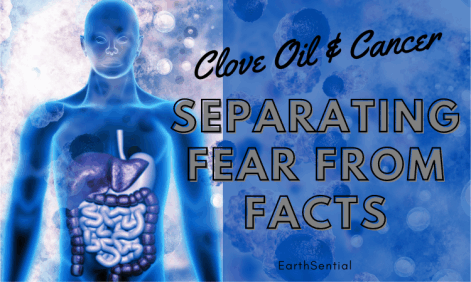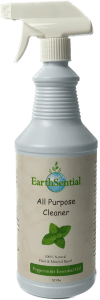Can Clove Oil Cause Cancer? Debunking the Myths and Understanding the Facts
Clove oil is popular as a natural remedy for various purposes, including oral health, pain relief, and aromatherapy. However, concerns have been raised about the potential link between clove oil and cancer. In this article, we aim to shed light on this topic and provide a balanced understanding of the potential risks and benefits associated with the use of clove oil.
When it comes to our health and well-being, it is crucial to be well-informed about the products and remedies we use. While clove oil has been praised for its therapeutic properties, it is equally important to examine any potential risks. By understanding the potential effects of clove oil, we can make informed decisions about its usage and ensure our overall well-being.
Clove oil is derived from the cloves of the Syzygium aromaticum tree, primarily composed of a compound called eugenol. This compound has been extensively studied for its pharmacological properties and has shown potential antimicrobial, antioxidant, and anti-inflammatory effects. However, concerns have been raised about the possible carcinogenic properties of eugenol and its impact on human health.
It is essential to approach this topic with caution and rely on scientific research to separate fact from fiction. By examining the available evidence and understanding the nuances of clove oil’s effects on the human body, we can gain a clearer understanding of its potential risks and benefits.
Understanding Clove Oil
Background Information on Clove Oil:
Clove oil, derived from the dried flower buds of the Syzygium aromaticum tree, has been valued for centuries for its unique aroma and numerous medicinal properties. With its warm, spicy scent and rich history in traditional medicine, clove oil has found its way into various cultures and industries worldwide. It is commonly obtained through steam distillation, a process that extracts the essential oil from the dried clove buds.
Clove oil’s versatility is remarkable, as it finds applications in multiple fields. In dentistry, it is recognized for its role in alleviating toothaches and oral discomfort. It is also valued in aromatherapy for its calming and soothing effects, promoting relaxation and emotional well-being. Additionally, clove oil is used in cooking and baking, adding a distinctive flavor and aroma to dishes and beverages.
The Chemical Composition of Clove Oil:
At the core of clove oil’s properties lies its chemical composition, prominently featuring a compound called eugenol. Eugenol is a phenolic compound known for its pleasant aroma and potential therapeutic effects. It contributes to the distinctive scent and taste of clove oil, making it a popular choice in various applications.
Eugenol possesses notable antimicrobial properties, which can help combat bacteria and fungi. Its antioxidant activity helps protect cells from oxidative stress, potentially benefiting overall health. Additionally, eugenol has been studied for its anti-inflammatory effects, suggesting potential applications in pain relief and reducing inflammation.
Understanding the chemical composition of clove oil, particularly the presence of eugenol, provides insight into its diverse uses and potential benefits. By harnessing the power of this natural compound, clove oil continues to captivate the interest of researchers and individuals seeking alternative remedies for various purposes.

The Potential Link between Eugenol and Cancer: Unraveling the Research
Examining the Effects of Eugenol on Cancer Cells:
Scientific studies have delved into the potential effects of eugenol, a key component of clove oil, on cancer cells. Some studies have suggested that eugenol exhibits anticancer properties, demonstrating inhibitory effects on the growth and proliferation of certain cancer cells in laboratory settings. These findings have sparked interest and curiosity regarding the potential therapeutic applications of eugenol in the field of oncology.
EPA Confirmation of Low Risk to Humans:
It is essential to consider regulatory assessments conducted by reputable agencies. The Environmental Protection Agency (EPA) has conducted testing and determined that clove oil, containing eugenol as a major component, falls under the FIFRA (Federal Insecticide, Fungicide, and Rodenticide Act) exempt category. This classification indicates that clove oil has a low risk to harm humans when used according to approved guidelines and poses minimal concerns regarding potential adverse health effects.
Understanding Cancer Formation from Healthy Cells:
To better comprehend the complex relationship between clove oil, eugenol, and cancer, it is important to understand how cancer cells form from healthy cells. Cancer is a multifaceted disease characterized by the uncontrolled growth and division of abnormal cells. These cells can undergo genetic mutations, disrupting the normal cell cycle and leading to the formation of tumors or the spread of cancerous cells to other parts of the body.
While research exploring the potential links between eugenol and cancer is ongoing, it is crucial to interpret the current findings within the broader context of scientific knowledge. Further investigations and comprehensive studies are needed to ascertain the precise impact of eugenol on different types of cancer cells and the overall implications for human health. It is recommended to consult healthcare professionals and rely on evidence-based information when making decisions about the use of clove oil or any other natural products in relation to cancer prevention or treatment.
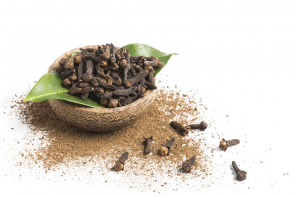
Safety Considerations and Guidelines: Using Clove Oil Responsibly
When it comes to using clove oil, it is crucial to exercise caution and follow recommended guidelines. Clove oil is highly concentrated and potent, so it is essential to dilute it properly before use. This ensures that its powerful properties are harnessed effectively without risking any adverse effects. Diluting clove oil in a suitable carrier oil, such as almond oil or coconut oil, helps to minimize potential skin irritations or sensitivities.
Potential Risks of Concentrated and Excessive Use:
While clove oil offers various benefits, it is important to be aware of the potential risks associated with concentrated and excessive use. Using undiluted or excessive amounts of clove oil may lead to skin irritations, allergic reactions, or sensitivities in some individuals. Furthermore, ingesting large quantities of clove oil can be harmful and may cause nausea, vomiting, or other digestive disturbances. It is always recommended to use clove oil in moderation and follow the recommended dosage guidelines.
Safety Tips and Precautions for Using Clove Oil:
To ensure a safe and enjoyable experience with clove oil, consider the following safety tips and precautions:
Patch Test: Before applying clove oil topically, perform a patch test on a small area of skin to check for any adverse reactions or sensitivities.
Proper Storage: Store clove oil in a cool, dry place away from direct sunlight. This helps maintain its potency and extends its shelf life.
Keep Away from Children and Pets: Clove oil should be kept out of reach of children and pets to prevent accidental ingestion or misuse.
Consult a Healthcare Professional: If you have any underlying health conditions, are pregnant or breastfeeding, or are taking medications, it is advisable to consult a healthcare professional before using clove oil to ensure it is safe for your specific circumstances.
Use in Well-Ventilated Areas: When using clove oil for cleaning or aromatherapy purposes, ensure proper ventilation in the area to prevent inhaling excessive amounts of the oil.
By following these safety tips and precautions, you can enjoy the benefits of clove oil while minimizing the risks associated with its use. As with any natural product, it is important to use it responsibly and be mindful of your own body’s reactions and limitations.
Making Informed Choices About Clove Oil Use
Throughout this exploration of the potential link between clove oil and cancer, it is important to note that there is currently no conclusive evidence to support a direct causal relationship. While some studies have examined the effects of eugenol, a compound found in clove oil, on cancer cells, the need for further research highlights the complexity of this topic. Some regulatory bodies such as the EPA have conducted testing and deemed clove oil to be FIFRA exempt, indicating a low risk to human health. These factors suggest that the concerns surrounding clove oil and cancer should be approached with caution.
Importance of Responsible Use and Professional Advice:
In light of the available information, it is crucial to emphasize the importance of using clove oil responsibly and seeking professional advice when needed. Diluting clove oil appropriately and following recommended guidelines can help minimize potential risks. It is also essential to consult healthcare professionals or aromatherapy experts, who can provide tailored recommendations based on individual health circumstances. Their expertise can ensure safe and effective usage of clove oil, particularly if you have underlying health conditions or are using other medications.
When considering the use of clove oil, it is crucial to make informed decisions based on scientific evidence and individual health circumstances. While the studies conducted thus far have not established a definitive link between clove oil and cancer, it is prudent to remain open to new research findings and ongoing developments in the field. By staying informed, seeking professional advice, and considering one’s own health and well-being, individuals can make choices that align with their values and priorities.
Ultimately, the responsible use of clove oil, like any other natural product, is key. Understanding the potential risks and benefits, adhering to recommended guidelines, and being proactive in seeking expert advice when necessary will help ensure the safe and enjoyable use of clove oil. As with any health-related decision, the focus should be on maintaining a balanced approach that promotes overall well-being and aligns with individual needs and preferences.

Purchase here…
EarthSential
All Purpose Cleaners:
Each designed to bring a touch of natural freshness and cleaning power to your home.
Available in: Clove, Lavender, Lemongrass, Mint & Orange.
All Purpose Cleaner can be used on a variety of surfaces, including kitchen and bathroom counters, floors, furniture, and even pet items.
We prioritize your well-being and the health of our planet.
That’s why our products are carefully crafted to be non-toxic, ensuring a safe and healthy cleaning experience for you and your family.
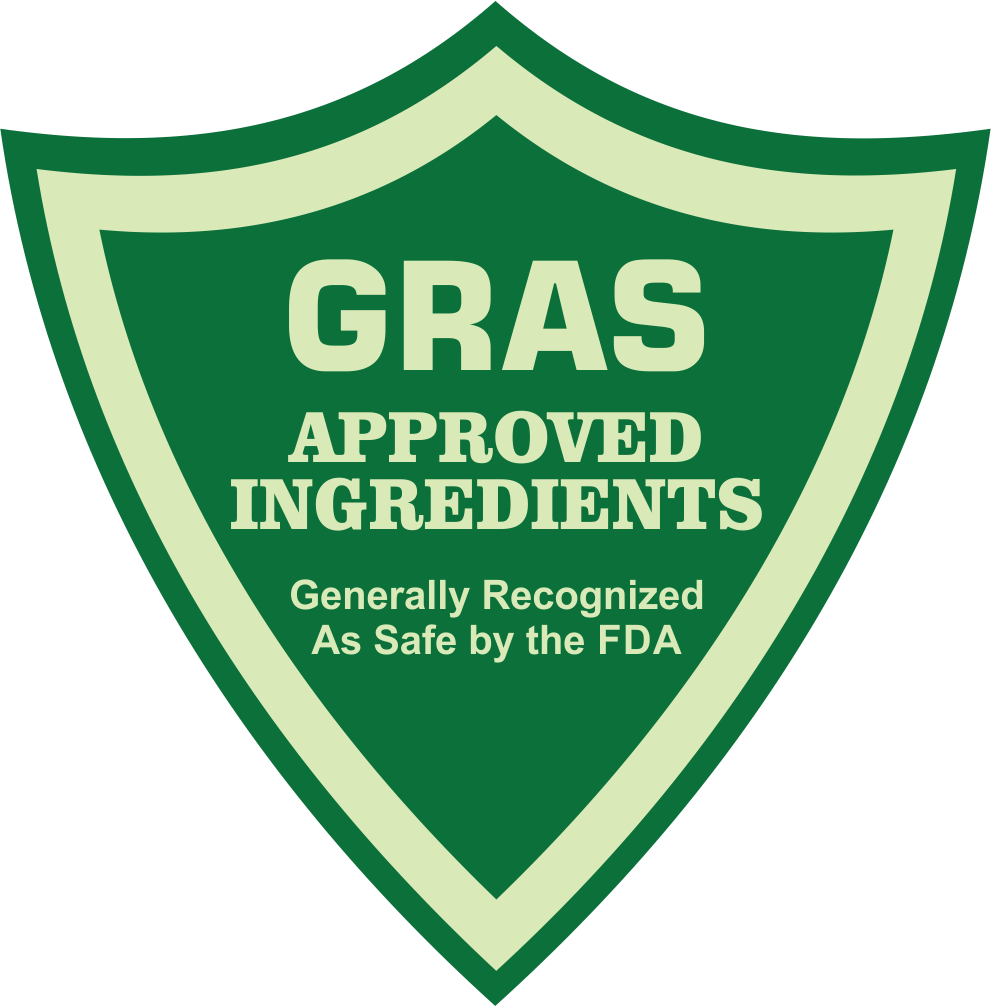
The SAFEST All Natural Ingredients
EarthSential products are made with safety as our first ingredient! Our ingredients are all natural food grade and all found of the GRAS List, approved as SAFE ingredients by the FDA. Rest assured that our products are the SAFEST in the world, we made them that way.
See what EarthSential
is all about!
Related Articles:
![]()
The Benefits:
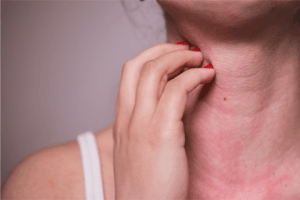
of Using Natural Cleaning Products for Allergy Sufferers
by Bonnie Pellerin Ι June 1, 2023 Ι 4 Min Read
Cleaning with Care:

Essential Tips for Cancer Patients and Caregivers
by Bonnie Pellerin Ι June 6, 2023 Ι 3 Min Read
Related Articles:
![]()
The Power of Nature
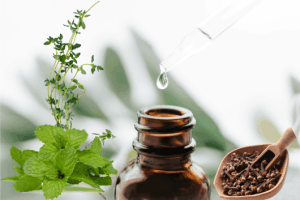
How Peppermint, Clove and Thyme Work Together to Repel Rodents
by Minus Bite Ι May 3, 2023
Get the EarthSential Newsletter
Good deals, great advice & essentially necessary.
MORE ARTICLES:
Discover the power of plant-powered cleaners
Discover the Power of Plant-Powered Cleaners Discover the Power of Plant-Powered Cleaners with EarthSential, where sustainability meets efficacy, offering environmentally friendly cleaning solutions that guarantee a sparkling clean home while staying true to your...
spring cleaning the chemical-free way
Spring Cleaning the Chemical-Free Way As the blossoms start to bloom and the days grow longer, it's the perfect moment to invite the revitalizing spirit of spring into our living spaces. And what better method to achieve this than by embracing Spring Cleaning the...
9 reasons a clean toilet seat matters
9 Reasons a Clean Toilet Seat Matters It prevents the spread of germs Ensuring a clean toilet seat is more than just about appearances—it's about safeguarding your health and well-being in one of the most used spaces in your home. In this article, we'll explore 9...
Safe for skin bathroom cleaning
Safe for skin bathroom cleaning Cleaning for a healthier home Have you ever wondered if your bathroom cleaning is safe for skin? Did you know that chemicals can seep into your body through your skin? And have you ever thought about whether you're really getting rid of...
why does my teenager keep getting ear infections
Teenage Ear Infections Why does my teenager keep getting ear infections? Ugh...As a parent, I've been troubled by a recurring issue – my teenager keeps getting ear infections. After consulting with the doctor, it became apparent that one of the culprits behind these...
removing wax from our fruits and vegetables
The Hidden Truth Why Removing Wax from Our Fruits and Vegetables MattersHave you ever wondered why no one taught us in school about the importance of removing wax from our fruits and vegetables before eating them? It's a question that often goes unanswered, yet the...
Benefits of natural glass cleaners for your home
Sparkles with Clarity The Benefits of Natural Glass Cleaners for your HomeImagine your home as a haven of tranquility, where every window sparkles with clarity and every surface gleams with purity. With EarthSential's natural glass cleaner, this dream becomes a...
Lavender infused cleaning is a holistic retreat
Lavender Infused Cleaning is like a Holistic Retreat Cleaning – a task often met with sighs and reluctance. But what if we told you that cleaning could be your ticket to a stress-free oasis? Lavender infused cleaning is like embarking on a holistic retreat, where the...
do i have chemical sensitization or a chemical allergy
Suffering from chemical sensitization or a chemical allergy? When cleaning, are you experiencing symptoms of chemical sensitization or a chemical allergy, such as skin irritation, respiratory distress, headaches, or nausea, reacting adversely to specific cleaning...
natural cleaners verses diy cleaning solutions
Natural cleaners verses diy cleaning solutions, what's the difference? What are the key differences between using natural cleaners verses DIY cleaning solutions, and how do they impact our homes and the environment? When it comes to cleaning your home, you may have...
